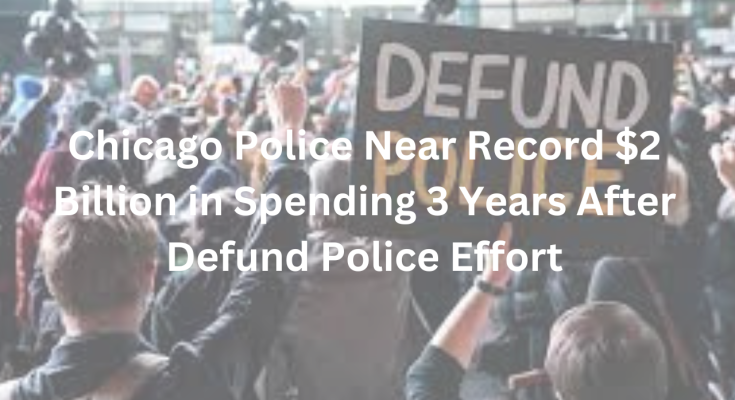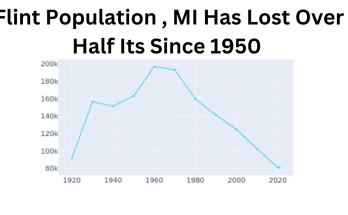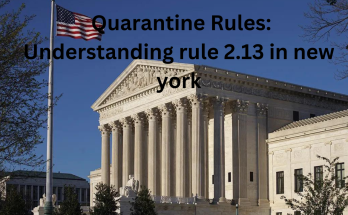Introduction Chicago Police Near Record $2 Billion in Spending 3 Years After Defund Police Effort:
In a city marked by complex dynamics of crime, public safety, and community-police relations, Chicago’s police department finds itself in the spotlight once again. Despite calls to “defund police” three years ago, recent reports reveal that the Chicago Police Department (CPD) is nearing record spending levels, with a budget close to $2 billion. This development underscores the ongoing debates surrounding policing, resource allocation, and the efficacy of defunding efforts. In this article, we’ll delve into the implications of Chicago’s police spending, the aftermath of the defund police movement, and the broader context of public safety in the city.
Understanding Chicago’s Police Budget:
Chicago’s police budget has long been a topic of contention, reflecting broader debates about law enforcement priorities and community needs. The CPD’s budget includes funding for personnel, equipment, training, and various operational expenses aimed at maintaining public safety and combating crime.
Despite efforts to reform policing practices and reallocate resources to alternative community-based programs, recent budget data indicates that the CPD’s spending has remained substantial, nearing the $2 billion mark. This figure raises questions about the impact of defund police efforts and the allocation of taxpayer funds in addressing systemic issues such as crime, violence, and social inequities.

Read More Interesting article : defund police efforts
Implications of Increased Police Spending:
The near-record spending levels of the CPD have significant implications for policing, public safety, and community well-being in Chicago:
- Resource Allocation: The allocation of significant financial resources to the CPD raises questions about priorities in addressing public safety concerns. Critics argue that excessive spending on law enforcement may divert funds from essential social services and community programs aimed at addressing root causes of crime.
- Policing Practices: Increased police spending may perpetuate traditional law enforcement approaches, including tactics such as aggressive policing, surveillance, and mass incarceration. Critics of these practices argue that they disproportionately impact marginalized communities and contribute to distrust and tension between law enforcement and residents.
- Community-Police Relations: The allocation of substantial funds to the CPD may exacerbate existing tensions between law enforcement and the communities they serve. Building trust and fostering positive relationships between police and residents is essential for effective crime prevention and response efforts.
Aftermath of the Defund police Movement:
The current state of Chicago’s police budget reflects the aftermath of the defund police movement, which gained momentum in the wake of nationwide protests against police brutality and racial injustice. The movement called for reallocating funds from law enforcement agencies to community-based programs aimed at addressing social issues such as mental health, housing insecurity, and poverty.
While the defund police movement sparked important conversations about police reform and resource allocation, its impact on policing practices and budgetary decisions varies across jurisdictions. In Chicago, efforts to defund police have been met with challenges, including political resistance, legal constraints, and concerns about public safety.
Broader Context of Public Safety:
Chicago’s police budget and the debate over defunding efforts must be viewed within the broader context of public safety in the city. Chicago faces significant challenges related to crime, violence, and social disparities, which require comprehensive and multidimensional approaches to address effectively.
Efforts to enhance public safety in Chicago should encompass a range of strategies, including investments in community development, economic opportunity, education, and mental health services. Collaborative initiatives that involve law enforcement agencies, community organizations, and residents are essential for promoting trust, accountability, and collective well-being.
Conclusion:
Chicago’s near-record defund police spending comes at a critical juncture for policing, public safety, and community-police relations. As the city grapples with persistent challenges related to crime and violence, it is essential to evaluate the efficacy of resource allocation and explore alternative approaches to addressing systemic issues.
The aftermath of the defund police movement underscores the complexities of reforming policing practices and reallocating resources to community-based programs. Moving forward, Chicago must strive to strike a balance between effective law enforcement, community empowerment, and social justice to create safer and more equitable neighborhoods for all residents.
Read More interesting Article : Delaying Challenge to Illinois Gun Ban: Insights from the Southern District of Illinois




